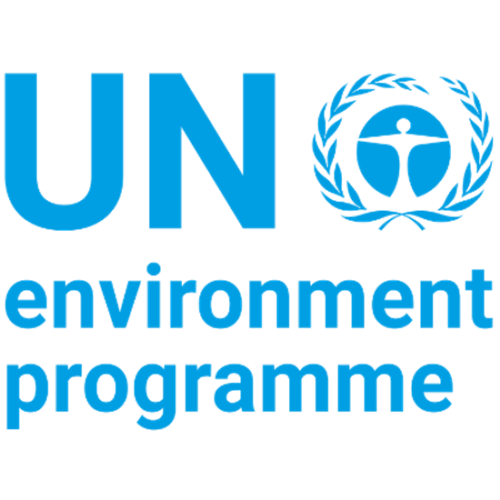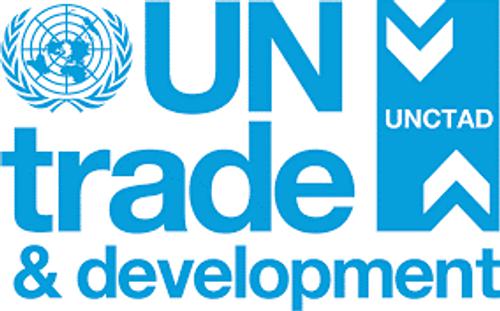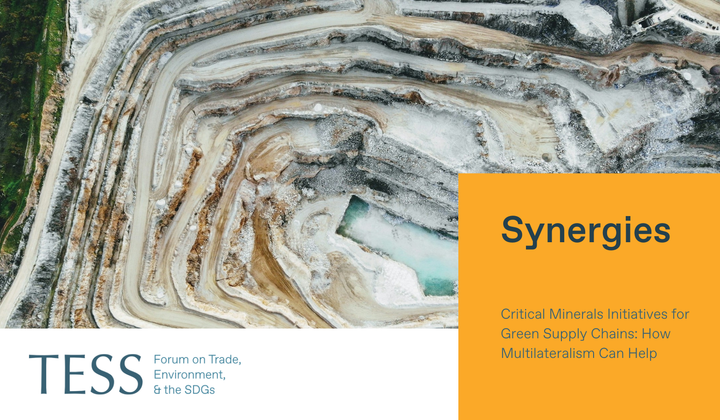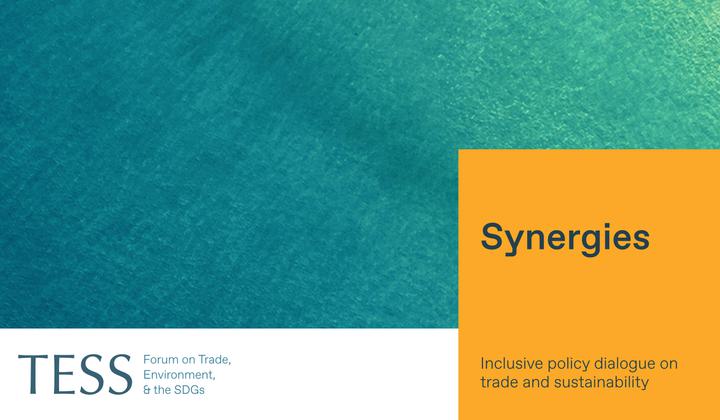Co-hosted by UNEP, UN Trade and Development (UNCTAD) and TESS, this roundtable aimed to identify issues at the nexus of trade in critical minerals, climate action, and sustainable development, and to explore possible approaches and pathways for enhanced international cooperation.
This roundtable brought together leading experts from international organizations and think tanks, governments, and stakeholder organisations to discuss issues at the nexus of trade in critical minerals, energy transitions, climate action, and sustainable development, and to explore possible approaches and pathways for enhanced international cooperation.
- It reviewed the role of critical minerals in climate action and energy transitions, the implications for trade, and the opportunities and risks from developing country perspectives.
- It examined trade-related initiatives and policy developments on critical minerals and their implications for global supply chains, and the integration and economic diversification of developing countries.
- It reviewed sustainability challenges associated with production, processing and supply of critical minerals and the role of trade and circularity in promoting sustainable and equitable critical minerals supply chains.
- It explored cooperative approaches to trade in critical minerals and avenues for international cooperation initiatives for sustainable and pro-development critical minerals supply chains.
- It contributed to ongoing efforts to foster multilateral cooperation, such as the UN Secretary-General’s Panel on Critical Energy Transition Minerals.
Agenda
9:30 – 9:45 Welcome Remarks From the Co-Hosts
- Carolyn Deere Birkbeck, Executive Director, Forum on Trade, Environment and the SDGs (TESS) (Moderator)
- Sheila Aggarwal-Khan, Director, Industry and Economy Division, UN Environment Programme (UNEP)
- Miho Shirotori, Acting Chief, Division on International Trade and Commodities, UN Trade and Development (UNCTAD)
9:45 – 10:45 Session 1: Setting the Scene
This session set the stage by providing an overview of the importance of critical minerals for meeting global climate goals and transition to net-zero energy systems. It reviewed current and projected dynamics and trends in critical minerals supply, demand, and trade, including key countries and supply chain actors involved, as well as relevant technology developments and trends. Finally, it introduced key issues for consideration in terms of strategic opportunities, implications and risks for developing countries.
Discussion starters:
- Roland Roesch, Director of the Innovation and Technology Centre, International Renewable Energy Agency (IRENA)
- Elisa Tonda, Chief, Resources and Markets Branch, UN Environment Programme (UNEP)
- Clovis Freire, Chief of the Commodity Research and Analysis Section, Commodities Division, UN Trade and Development (UNCTAD)
Click HERE for Clovis Freire's presentation.
- Sandra Averous-Monnery, Economic Affairs Officer, Trade and Environment Division, World Trade Organization (WTO)
Click HERE for Sandra Averous-Monnery's presentation.
- Tom Moerenhoet, Centre for Global Energy, School of International and Public Affairs, Columbia University
Questions for discussion:
- What minerals are key for the transition to net-zero energy systems? How critical are they? For whom and why?
- Where are critical minerals currently produced and processed? Who are the key current and projected actors in relevant supply chains?
- What are current and projected global supply and demand dynamics and how are these project to impact the availability of and access to critical minerals?
- What are the strategic opportunities, implications, and challenges for developing countries in terms of trade and sustainable development?
10:45 – 11:00 Coffee/tea
11:00 – 12:15 Session 2: Towards Sustainable and Just Critical Minerals Supply Chains Management: The Role of Trade
This session deep dived into the environmental, social, and economic challenges associated with critical minerals supply chains. It explored trade-related considerations and options relevant to sustainable and just mining and critical minerals supply chains, including in relation to economic diversification and value addition priorities of resource rich developing countries.
Discussion starters:
- Djaheezah Subratty, Head, Sustainable Consumption and Production Unit, UN Environment Programme (UNEP)
- Anis Nassar, Lead, Circular Economy Innovation and Business Engagement, World Economic Forum (WEF)
- Harikrishnan Tulsidas, Economic Affairs Officer, Sustainable Energy
Division, United Nations Economic Commission for Europe (UNECE)
Click HERE for Harikrishnan Tulsidas' presentation.
- Marit Kitaw, Interim Director, African Minerals Development Center (AMDC), Member of the UN Secretary General's Panel on Critical Energy Transition Minerals
Questions for discussion:
- What are the main environmental, social, and economic impacts of up-scaled mining of critical minerals?
- How can we diversify supply of critical minerals and integrate developing countries in processing and value-addition?
- What domestic policies and international policy frameworks would incentivize and support sustainable, responsible, and fair mining practices and supply chains?
- What are the opportunities for greater cooperation around key technologies and circular economy approaches?
12:15 – 13:15 Lunch break
13:15 – 14:30 Session 3: Trade-Related Initiatives and Policy Trends in Critical Minerals
This session reviewed the range of recent trade-related policy developments relevant to critical energy transition minerals and associated supply chains as the international community seeks to respond to the climate imperative, both by countries keen to secure supply and resource-rich countries keen to advance green industrialization and economic diversification priorities. The session provided an opportunity to reflect on commercial, geopolitical, development, and equity considerations relevant to policy developments.
Discussion starters:
- Henry Gao, Professor of International Law, Singapore Management University
- Weihuan Zhou, Associate Professor, University of New South Wales, Sydney
- Nimrod Zalk, Chief Research Officer, Nelson Mandela School of Public Policy, University of Cape Town
Click HERE for Nimrod Zalk's presentation.
- Bernice Lee, Hoffman Distinguished Fellow for Sustainability, Chatham House
- Guillaume Dabré, Project Specialist, World Economic Forum (WEF)
Click HERE for Guillaume Dabré's presentation.
Click HERE for a White Paper by WEF on Translating Critical Raw Material Trade into Development Benefits.
Questions for discussion:
- What trade-related policies and measures are major economies adopting to secure supply of critical minerals? How do these policies impact resource-rich developing countries?
- What trade-related policies and measures are resource-rich developing countries adopting in response to the surge of demand for critical minerals and to manage the implications of policies adopted in major export markets?
- What global initiatives are being deployed to promote policy coherence? And what are the challenges?
14:30 – 14:40 Coffee/tea
14:40 – 15:55 Session 4: Pathways to a Cooperative Approach to Critical Energy Transition Minerals and Trade
The final session explored pathways for international cooperation on trade in critical minerals and options for collaborative responses that reflect the urgency of climate action and the energy transition as well as of sustainable development and just transitions.
Discussion starters:
- H.E. Mrs. Maira Macdonal Alvarez, Ambassador, Permanent Representative of the Plurinational State of Bolivia to the United Nations and other International Organizations in Geneva
- Fu Kangrong, Counselor, Permanent Mission of China to the WTO,
- Niwa Dwitama, Second Secretary, Permanent Mission of the Republic of Indonesia to the United Nations Office and other international organizations in Geneva
- Zora Mincheva, Policy Officer, European Commission
Proposed questions for discussion:
- What are some key recommendations for international trade cooperation on critical minerals that support sustainable development, climate cooperation and just transitions?
- What role can the multilateral trading system play?
- What kinds of evidence, analysis and processes are required to inform trade-related cooperation efforts, what is already underway, and what are the opportunities for different organisations and experts to support?
15:55 – 16:00 Concluding Remarks
Co-hosted with UNEP and UN Trade & Development






